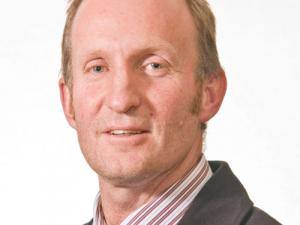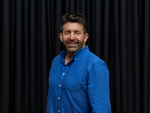Climate change and water quality are two issues the sheep and beef industry has yet to nail, says Beef + Lamb NZ chairman, Andrew Morrison.
Speaking to Rural News last week at the Red Meat Sector conference in Napier, he said health and safety was a big issue 12-18 months ago but the industry has moved on from this and is working through these other issues.
“We really want to get the water quality and climate change issues sorted,” Morrison says. “We are working out what tools we can set up to help change the behaviour of people on these issues; not regulation so much as how we can structure policy that gets the necessary outcomes.”
The conference heard a lot about the need for NZ to focus on the growing and changing demands of modern consumers, especially in wealthy markets. But Morrison believes these consumers’ demands are no different from what Kiwis expect from this country’s production systems.
“So we need to demonstrate to consumers – and NZers – that they have every reason to feel comfortable with our production systems and the proteins we produce.
“We also must demonstrate that we are handling climate change, water quality and animal welfare to a high standard, which should alleviate any concerns they have.”
Morrison says the conference in Napier was excellent and it was good to see unity between farmers and processors. He saw the conference helping to unify the industry.
“Farming doesn’t end at the mailbox and excellence in processing doesn’t start at the mailbox, so we must work together to help create products that add value all the way through the system.”
Andrew Morrison says BLNZ and MIA are working well together -- they recently held a joint strategy day -- and have spent a lot of time working with the new government.
“It’s exciting times; everyone talks about challenges and disruptions, but these are opportunities,” he says.



















